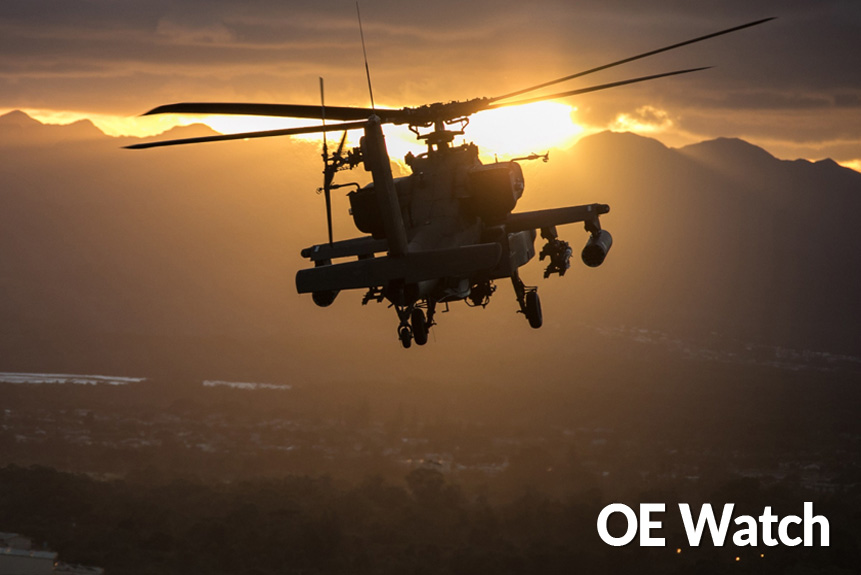Included among OE Watch’s usual broad range of foreign perspectives of the operational environment, this issue richly highlights responses to theCOVID-19 pandemic from foreign sources, revealing a variety of impacts ranging from military considerations to diplomatic influence to conflicts.
The Russian military, like many others, is grappling with balancing military readiness and soldier safety (“COVID-19 and the Russian Spring Draft”) while the army also plays various roles in fighting the pandemic (“Constructing Multifunctional Medical Centers to Combat COVID-19”; “The Russian Army’s
Domestic Support for Civil Authorities”). The May issue also continues its traditional coverage of updates in Russian military technology (“Russian Topographic Maps and Cloud-Based Technology”; “Russia Continues to Upgrade its Northern Fleet”; “The Russian Army’s Smoke Screen Production and
Training”).
China appears to be conducting an intense propaganda campaign to pre-empt being held accountable for its role in the spread of the virus (“Chinese Military Hosts Video Conferences to Help Allies Combat COVID-19”; “Chinese-Arab Cooperation in the Time of COVID-19”; “China’s COVID-19 Diplomacy in the Middle East”); but some are not convinced (“China: Business as Usual as COVID-19 Diverts the World’s Attention?”; “China’s Image in LATAM Suffering?”). This issue of OE Watch also looks at the PLA’s continued efforts to prepare for the future battlefield (“China: Building Leadership Skills in NCOs for the Future Battlefield”; “China: The Changing Dynamics of Mobilization Under Informatized Warfare”). The Indo-Pacific section includes an example of how the pandemic is leading to security vulnerabilities for adversaries to exploit (“Insurgents Exploit Thailand’s Efforts against COVID-19”).
In the Middle East, Russia is strategically using COVID-19 as it competes with Iran for influence in Syria (“Russia Sees Opportunity in COVID-19 to Isolate Iranian Forces in Syria”). Meanwhile, the outbreak has created new challenges for the Syrian Kurds who are stuck with foreign ISIS detainees (“The Impact of COVID-19 on SDF Operations and ISIS”). Other examples of unexpected developments include a decline in Hezbollah’s standing in Lebanon and a potential prisoner swap deal between Israel and Hamas (“Hezbollah’s Standing in Lebanon Tarnished by Coronavirus Response”; “COVID-19 Prompts Israel and Hamas to Explore Prisoner Swap”). Like the rest of the world, the Middle East is also ripe with conspiracy theories, convenient narratives and a familiar culprit (“The Houthi Movement Says COVID-19 is US Biological Weapon”; “Iran: Khamenei on Power and Patience”).
Many countries in Africa have not even begun to deal with COVID-19 due to conflict, terrorism, poverty, and other diseases (“Al-Shabaab’s Infighting Over Funds”; “South Sudan’s Obstacles to Peace”; “Amidst COVID-19 Pandemic, Neglecting the Neglected Tropical Diseases”). In Mexico, cartels are seizing the opportunity to fill a governance void by providing handouts (“Gulf Cartel Distributes Food and Supplies to Residents of Ciudad Victoria). In Latin America, some countries are faring better than others in dealing with the pandemic (“Venezuela and Coronavirus”; “Colombia and Coronavirus”; “Ecuador Worst Hit by COVID-19?”).
This issue of OE Watch features 65 articles covering various security challenges from the foreign perspective from over 30 different countries and regions around the globe. It can be found at FMSO’s website: https://community.apan.org/wg/tradoc-g2/fmso/. All of FMSO’s books, studies, and OE Watch issues are there.
This particular issue can be downloaded directly at https://community.apan.org/wg/tradoc-g2/fmso/m/oe-watch-past-issues/328499/download.
For more information on this product, please contact: Mr. Paul (Kent) Baumann, paul.k.baumann2.civ@mail.mil, Foreign Military Studies Office, Fort Leavenworth, KS

